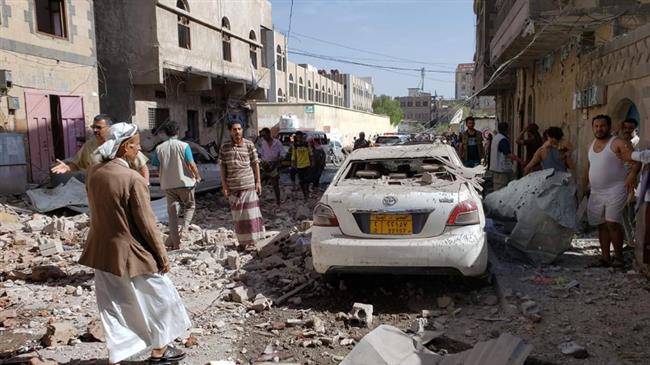After five days of treatment in a shabby Yemeni hospital, Luai Sabri died on Tuesday. The 20-year-old had a cracked skull, a ruptured spleen and a damaged liver, according to a relative, injuries caused by a bomb that dropped from a warplane flown by the Saudi-led coalition.
The airstrike was part of a wave of bombings over the Yemeni capital, Sana, last Thursday that coincided with a spike in tensions between the United States — which supports the Saudi-led coalition in Yemen .
Several airstrikes hit the city outskirts. But one pulverized several homes in a crowded residential area where Mr. Luai, a recent high school graduate, lived.
Five people died immediately — his brother Hassan, 17, and four children in a house next door, the youngest of whom was 6. Among the 31 people wounded in the attack were Mr. Luai’s father, , his grandparents and another 15 children, according to relatives .
They were the latest casualties of an air war that has killed thousands of Yemeni civilians since 2015, stirring outrage against a Saudi-led coalition, which had already been criticized for limiting food shipments to the famine-threatened country.
The war’s many critics, in Congress as well as in the human rights community, call that a gross understatement. While Saudi or Emirati pilots usually pull the trigger in raids on Yemen, the United States provides the warplanes, munitions and intelligence used in many of those strikes.
The ethical quagmire evolved into a political storm this year when Congress passed a bipartisan resolution withdrawing American support for the war, only to be blocked by President Trump who used his veto last month. The measure was “an unnecessary, dangerous attempt to weaken my constitutional authorities,” endangering the lives of American citizens and service members, Trump said.
© Copyright 2016 - Althawra Net




















